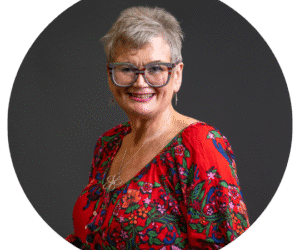The PBS News Hour on Wednesday unwittingly showed off ideological double standards in three separate segments: a hostile profile of controversial Republican activist Laura Loomer, a gushfest with controversial pro-Palestinian activist and kid-vid host “Ms. Rachel,” and a celebration of a kinder, gentler form of racial bias in an arts community in Maine for “Black and brown artists.”
Co-host Amna Nawaz was loaded for bear from the start of the hostile Loomer profile, conducted by reporter Stephanie Sy.
Amna Nawaz: A right-wing political activist who’s spread conspiracy theories and used hate speech has become a central figure in the hirings and firings of Trump administration staffers. Laura Loomer has successfully lobbied to remove aides from several key government roles, including the National Security Council. Despite her close alliance with the president, she’s drawn some foes within the Republican Party, including Congresswoman Marjorie Taylor Greene. Stephanie Sy has more on her mission to shape the Trump administration in her vision.
But another controversial ideological figure, children’s video host “Ms. Rachel,” who has a side gig on social media pushing Hamas-helping propaganda about conditions in Gaza, received a radically different welcome from the News Hour in the next segment, following up on a recent appearance on another PBS show, Amanpour & Co.
Ms. Rachel (real name Rachel Accurso) raised her rhetoric further, making not just one but two more false accusations of “genocide” against Israel, which went unchallenged by PBS journalists.
Co-host Amna Nawaz, a daughter of Pakistani immigrants, blandly noted Ms. Rachel had “been making headlines and facing scrutiny for taking a stand on her social media platforms on current events,” then segued to Ms. Rachel’s interview with co-host Geoff Bennett, who flattered her with a Mister Rogers comparison, just as Amanpour had.
Geoff Bennett: And when you mention the deep care for all children, you have taken a public stand on the humanitarian crisis in Gaza, sharing stories, raising funds, speaking out. What responsibility do you feel that you have to address that crisis, given your platform?
Accurso has been accused by the group Stop Antisemitism and others of spreading Hamas-friendly propaganda while ignoring the plight of Israelis until pressured.
After another gushy question, Accurso claimed Gaza children were living “in the midst of genocide.”
Bennett eventually got to his single challenging question, followed by a standard PBS News Hour ploy inviting a general defensive response, not a specific answer, from a favored liberal guest.
Geoff Bennett: And there has been backlash, as you well know. This past spring, the pro-Israel group, it’s called Stop Antisemitism, they published an open letter calling on the attorney general, Pam Bondi, to investigate whether you were acting as a foreign agent who was being paid — this is a quote — “to disseminate Hamas-aligned propaganda to her millions of followers.” What is your response to that? And how have you been navigating the criticism?
Accurso said the quiet part out loud – that her PBS appearance was a political move.
Accurso: I think it’s sad to take someone’s dedication and love for all children and try and make that wrong….I told my son today: “I’m going on PBS News Hour to try and help the kids in Gaza get food.”
Ironically, after two segments complaining about racism and dehumanization, the show concluded with a segment profiling some acceptable, corporately funded race bias, courtesy of Indigo Arts Alliance in Maine.
Co-anchor Amna Nawaz: It’s an arts organization focused on supporting contemporary Black and brown artists and opening doors to artists of color worldwide. As senior arts correspondent Jeffrey Brown reports, Indigo Arts Alliance is doing all of this from its home in an unlikely place. Maine….
(As usual, PBS capitalizes “Black” throughout the online transcript)
The ironically named Jeffrey Brown profiled the also ironically named poet Arisa White, who complained about the whiteness of her new home in Maine. Brown forwarded Indigo co-founder Marcia Minter’s “concerns about coming to a state then and still one of the least diverse in the nation.”
















